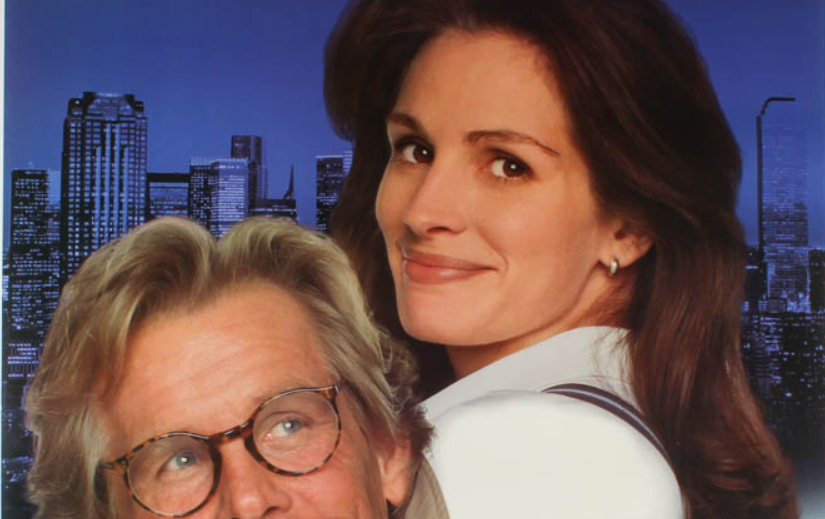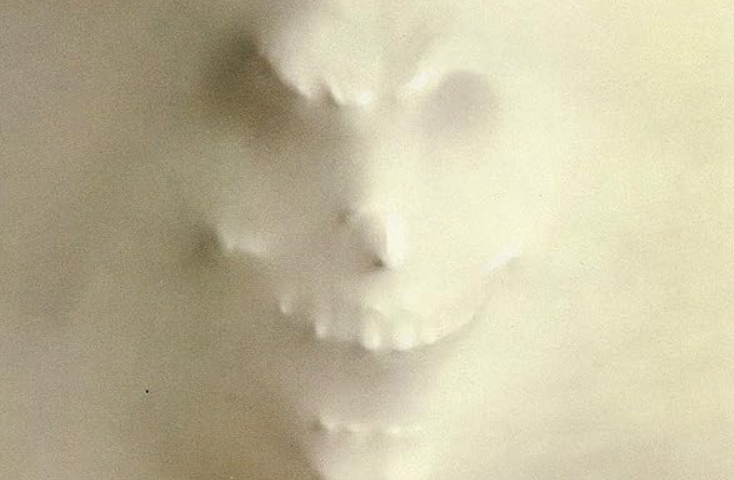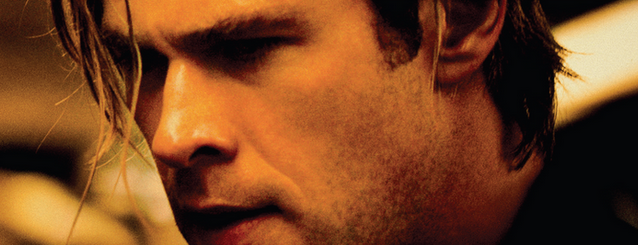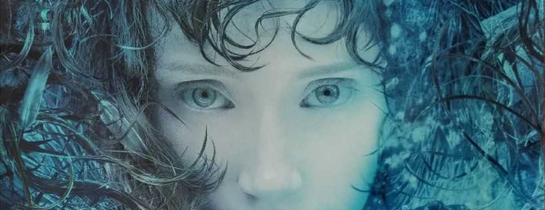Julia Roberts
She's America's sweetheart and arguably the Queen of Hollywood! She was Erin Brockovich! She was a girl, standing in front of a boy, asking him to love her!

Right off the bat, I want to make one thing clear – it’s not that I dislike Julia Roberts. It’s just that I dislike Julia Roberts Movies.
It might sound weird for me to say that the erstwhile, talented, popular and charismatic Ms Roberts has had enough of an impact on cinema at the very end of the 20th Century to have her own genre of movies, but I think I can make a case for it. They’re all built out of very similar blocks of tropes and characters. Think of a movie in which we have a very headstrong, determined, maybe even fiery female protagonist. She faces opposition from those around her in her career, even from those closest to her, be they bosses or boyfriends. This character may not particularly want or need a romantic partner, but the male lead will definitely want her and have to prove himself. Et voila! Bash all the cliches together like an Ikea cabinet, set it somewhere pretty, send the script to Ms Roberts, offer her $15-25million and we’re off to the races.
This is not to say these films are necessarily bad in concept or execution. Things like Eat, Pray, Love, for example, took $200 million on a $60 million budget. Mona Lisa Smile: $140 million on a $72 million budget. Or Erin Brockovich, $256 million on a $52 million budget and Best Actress for Roberts. I’m not the one lapping this stuff up, and it has enough appeal for Roberts to have made a career out of.
Her career started quickly, most likely because she always delivers a good performance. After good notices for Mystic Pizza and Steel Magnolias, she hit the big time in 1990 with Pretty Woman. She’s appeared in plenty of romantic comedies since then, things like Notting Hill – a film which has barely aged at all, although it did ruin Notting Hill as a place to live in London – or Runaway Bride. Lots of forgettable fluff in the comedy section of her filmography. Yet for every lightweight, instantly-forgotten comedy, there’s been something meatier. You’ve got the imperious Julia of Charlie Wilson’s War, you’ve got the paranoid oddity of Conspiracy Theory opposite Mel Gibson, you’ve got the deliberately uncomfortable viewing of Closer. And you’ve got the paint-by-numbers Julia Roberts Movies too, but I won’t hold them against her.
She’s been offered all of the roles imaginable over her career. From her breakthrough as a sexy young starlet (and truth be told, I don’t buy her as the super-hot leading lady she’s often painted as, and never have, so when in Ocean’s Eleven Matt Damon said her walking down the stairs was the best part of his day, the film kinda lost me), through to playing roles as thrusting career professionals, through to roles as a put-upon mother, to more imperial and queenly roles as she’s aged. She’s been utterly reliable, but – in my opinion – only intermittently brilliant.
Back we go to 1993. You probably haven’t heard of husband and wife writing and directing team of Nancy Myers and Charles Shyer, but they had been both productive and successful in Hollywood for quite a while. On the writing front, Shyer has credits for Smokey and the Bandit, the Goldie Hawn vehicles Private Benjamin and Protocol, and Jumpin’ Jack Flash. He directed the comedies Baby Boom and Father of the Bride, then later the Lindsay Lohan Parent Trap and the Jude Law Alfie. Nancy Myers co-wrote most of those, and later wrote and directed some of the starrier 2000s rom-coms, like What Women Want, Something’s Gotta Give, The Holiday and It’s Complicated. As a creative duo, these guys have a type. They weren’t always making mega-hits, but they were working.
In 1993, they were working on their next project, I Love Trouble. Nick Nolte had been attached as the male lead, no doubt still feeling all warm and fuzzy after People had named him Sexiest Man Alive a few years earlier. Roberts’ star was still in the ascendant after a string of hits. Details are thin on the ground these days, but it seems Myers and Shyer were trying to recapture some of the charms and ambience of classic Spencer Tracy or Katharine Hepburn vehicles. Both Nolte and Roberts were hot properties, both were reliable performers, you’d think it would work.
Reader, it did not.
I Love Trouble starts out as a very old-school story of two reporters in Chicago, Peter Brackett (Nolte) and Sabrina Peterson (Roberts). Brackett, once a hot-shot reporter, has become a columnist and achieved the kind of God-like status Walter Cronkite once possessed, along with a reputation as the playboy’s playboy. Peterson, however, is fresh off the bus into town and desperate to prove herself. They both attend the scene of a train crash but when Brackett leaves to promote his book, Peterson works the story and scoops him. This threatens his virility and so he decides to return to his old newshound ways.
Both are busy chasing leads: Peterson’s takess her to a dead body with a clue scrawled on it - LDI. Brackett’s draws him to a night-time meeting in an office. To no-one’s surprise, Peterson is there too. They try to meet the informant, but the world’s least able assassin tries to kill them, only to die himself and deliver them another clue, the number 307.
Undeterred, they separately go to meet their informant, who has skipped town, meet again and uncover more clues. Peterson tells Brackett the investigation is too dangerous, but to the surprise of exactly no-one, again, they have adjacent seats on a flight to the next scene in the story. They agree to work together, but both are trying to trick the other and steal their story.
The plot thickens. A scientist had died a week before the train crash and left vital information to his son, who died in the crash. LDI is actually LDF, a cattle hormone which a Dr Beekman was working on that could revolutionise the dairy industry, made by industrial giant Chess. Another half-assed assassination attempt takes place, and then another, and then some ‘romantic’ hijinks, and our intrepid reporters end up in Las Vegas for some reason. There, they accidentally get married while trying to evade The Thin Man (James Rebhorn, cast as an assassin of all things) and bump uglies while Peterson is drunk.
To the climax! Peterson gets a job at Chess to aid her investigation but, to the surprise of no-one, is recognised by the bad guys, who capture her before revealing that LDF is carcinogenic, thus providing a motive to kill Beekman before he could blow the whistle and then crash a train to stop his son. An uninspired action sequence follows where Brackett rescues Peterson and all the bad guys die. The end.
This film isn’t even good enough for me to call it a mess. It’s bad from top to bottom, but not in the hilarious ‘so bad it’s good’ way, rather ‘sweet Jesus this film is boring’.
Right from the off, by having a story centred on a pair of rival reporters, we have a film redolent of classic 1950s romantic comedies. There is a slightness to such stories these days, along with a delightful timelessness. Imagine Cary Grant and Audrey Hepburn gallivanting around the Cote D’Azur, chasing after a corrupt businessman, getting into all manner of tiny troubles while gently snarking at each other and slowly, slowly falling in love because they complement each other. This is the exact feel Shyer and Myers were aiming for, and they missed their target horribly, for three major reasons.
The first is down to casting. Individually, I have no issue at all with Roberts or Nolte as actors in general, and even in this specific instance, both of them had a good track record in comedies. Their performances aren’t great in this movie. I totally buy Nolte as a handsome womanising rogue since he has a few charismatic moments in this film which effectively sell this aspect of Brackett’s character. Roberts, on the other hand, is sleepwalking through the movie. She isn’t bad, per se, but there are no signs of any great effort from her.
There is a reason for this, and a reason for the total lack of chemistry between the two leads. A film like this, one that wishes to be seen as a playful romantic comedy, demands that playfulness and chemistry between the leads. There is none on display. According to reports, Roberts took very strong exception to some of Nolte’s on-set behaviour and the pair had a colossal falling-out. Here is a movie where chemistry is essential and Roberts’ chilliness towards Nolte is palpable. As played, there is no good reason why Brackett and Peterson would like each other, let alone fall in love. It’s hard for the viewer to care about such flat, unlikeable characters.
The third reason why this film fails on every level is because it doesn’t actually know what film it wants to be. At no point is it ever funny enough to be classed as a comedy. The lack of chemistry robs the interactions between the leads of even the tiniest spark of humour, rendering much of their sparring as cruel rather than funny. It isn’t particularly interesting as a mystery, because it isn’t written remotely like one. It isn’t exciting enough to be considered a thriller, partly because none of the villains are portrayed with any great villainy, and there is nowhere near enough stuntwork for it to be an action movie. Some critics have stated that the producers wanted to cash in on Roberts’ previous work in The Pelican Brief, but the script tries to be too many things and fails at all of them.
The sexual politics of this movie are rather unpleasant, too. Brackett’s playboy reputation is presented as a fait accompli and is almost entirely unearned, and his shitty, patronising treatment of Peterson from their very first meeting helps to undermine this aspect of his character. He’s rarely charming, or funny, or disarming. He is consistently belittling and demeaning towards Peterson, because she has the temerity to be as good at her job as he is. Then there’s a bizarre moment in a pitch-black lift where Brackett sexually assaults Peterson by putting his hands under her shirt. Yechhh. The writers don’t help themselves by undermining Peterson in the Vegas sequence. First, they write her getting drunk, and then she confesses how she doesn’t understand why Brackett doesn’t think she’s the hottest woman alive, and then when she is drunk and emotionally vulnerable, they have sex. Ugh. I mean, this film is from the early nineties, but surely such ugly characterisation and writing was beyond the pale even then?
I Love Trouble wasn’t doomed from the off by its dull, ugly writing, but it certainly didn’t help. Bad screenplay plus awful chemistry between leads results in a movie which the critics hated and audiences stayed away from. And it’s this lack of quality across the board which means I Love Trouble will never be re-examined as a lost movie worthy of a second look, because it isn’t. Boring, stupid and unfunny. That’s its reputation, and it is a deserved reputation. It’s not worth your time.



